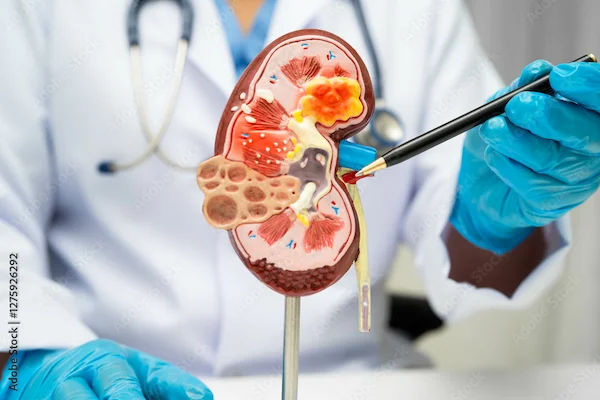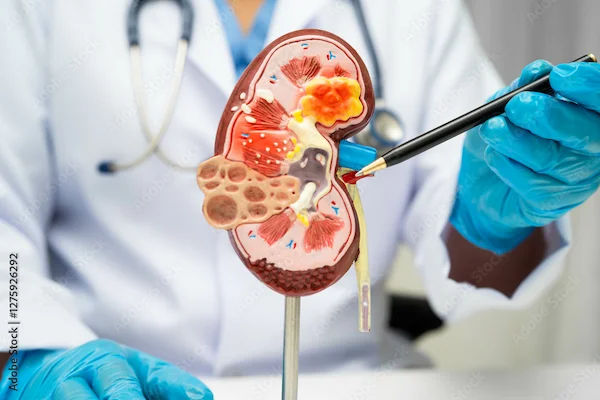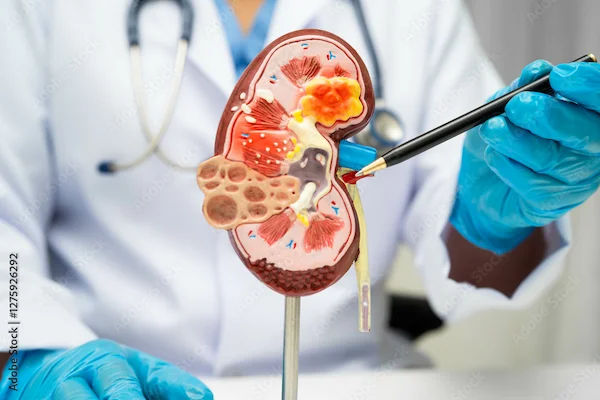Till What Age Kidney Transplant Can Be Done?
Is there an age limit for kidney transplants? Learn that it's more about overall health than specific age, with successful transplants performed in patients well into their 70s and beyond.

Written by
Last updated on 14th Jul, 2025

Introduction
If you or a loved one is suffering from kidney failure, you may be wondering whether a kidney transplant is still an option, especially if you're older. The good news is that age alone does not always disqualify someone from receiving a kidney transplant. Advances in medical science have made it possible for many elderly patients to undergo successful transplants and enjoy a better quality of life.
In this article, we’ll explore:
The general age limits for kidney transplants
Factors that determine transplant eligibility
Risks and benefits for older patients
Alternative treatments if a transplant isn’t possible
Tips for maintaining kidney health
Is There an Age Limit for Kidney Transplants?
There is no strict upper age limit for kidney transplants. While younger patients (under 65) are often preferred due to better long-term outcomes, many transplant centers evaluate patients based on their overall health rather than just age. Some successful kidney transplants have been performed on patients in their 70s and even 80s, provided they are in good health otherwise.
Key Factors Considered Before a Transplant
Doctors assess several factors before approving a kidney transplant, including:
1. Overall Health – Heart, lung, and liver function must be stable.
2. Presence of Other Diseases – Conditions like uncontrolled diabetes, severe heart disease, or cancer may disqualify a patient.
3. Mental and Physical Fitness – The ability to handle surgery and follow posttransplant care.
4. Support System – Having family or caregivers to assist with recovery.
5. Lifestyle Habits – Smoking, excessive alcohol, or poor diet may affect eligibility.
Benefits of Kidney Transplant for Older Adults
Even for elderly patients, a kidney transplant can offer significant advantages over dialysis:
Better Quality of Life – No need for frequent dialysis sessions.
Increased Longevity – Transplanted kidneys can function for 10-20 years.
Improved Energy Levels – Many patients feel more active posttransplant.
Fewer Dietary Restrictions – Unlike dialysis, transplants allow more flexibility in food choices.
Consult Top Specialists for Personalised Tips
Risks and Challenges for Older Patients
While transplants can be successful, older adults face some additional risks:
Higher Surgical Risks – Age can affect recovery speed.
Weaker Immune System – Increased risk of infections postsurgery.
Higher Chance of Rejection – Older bodies may not adapt as easily to the new kidney.
Longer Wait Times – Older patients may wait longer for a compatible donor.
Alternative Treatments if Transplant Isn’t an Option
If a kidney transplant isn’t suitable, other treatments include:
Dialysis – Hemodialysis or peritoneal dialysis can help filter blood artificially.
Conservative Management – Focuses on symptom relief without dialysis.
Medications & Diet Control – Helps slow kidney damage and manage complications.
Tips for Maintaining Kidney Health
Whether you're considering a transplant or not, taking care of your kidneys is crucial:
Stay Hydrated – Drink enough water to help kidneys filter waste.
Eat a Balanced Diet – Reduce salt, processed foods, and excessive protein.
Control Blood Pressure & Diabetes – These are leading causes of kidney damage.
Avoid Smoking & Excessive Alcohol – Both harm kidney function.
Exercise Regularly – Helps maintain overall health.
When to Consult a Doctor?
If you or a family member has kidney disease and wants to explore transplant options, consult a nephrologist (kidney specialist). They can assess your eligibility and guide you through the process.
Final Thoughts
Age alone should not discourage you from considering a kidney transplant. Many older adults lead healthy, active lives after a successful transplant. The key is to work closely with your medical team to determine the best treatment plan for your condition.
If you have concerns about kidney health or transplant eligibility, don’t hesitate to seek professional guidance. Early intervention can make a big difference in managing kidney disease effectively. Would you like to speak to a specialist? Book an appointment today and take the first step toward better kidney health!
Consult Top Nephrologist
Consult Top Specialists for Personalised Tips

Dr. Umesh Chandra Sahu
Nephrologist
32 Years • MBBS,MD ( General Medicine ). Sr. Consultant ( Nephrology )
Rourkela
Apollo Hospitals, Rourkela, Rourkela

Dr. Boddanapu Mastan Valli
Nephrologist
9 Years • M.D, D.M.
Nellore
Apollo Speciality Hospitals, Nellore

Dr Ajay Kumar Sharma
Transplant Specialist Surgeon
39 Years • MBBS, MS, DNB, FRCS (Glas), FRCS (Edin), FRCS (General Surgery), MSc Medical Education
Delhi
Apollo Hospitals Indraprastha, Delhi

Dr. Jignesh Pandya
Nephrologist
27 Years • MD(Medicine), DNB(Nephrology).
Bilaspur
Apollo Hospitals Seepat Road, Bilaspur
(25+ Patients)

Dr. Satyanarayana Garre
Nephrologist
6 Years • MBBS,MD,DNB Nephrology
Hyderabad
Apollo Hospitals Jubilee Hills, Hyderabad
(25+ Patients)
Consult Top Nephrologist

Dr. Umesh Chandra Sahu
Nephrologist
32 Years • MBBS,MD ( General Medicine ). Sr. Consultant ( Nephrology )
Rourkela
Apollo Hospitals, Rourkela, Rourkela

Dr. Boddanapu Mastan Valli
Nephrologist
9 Years • M.D, D.M.
Nellore
Apollo Speciality Hospitals, Nellore

Dr Ajay Kumar Sharma
Transplant Specialist Surgeon
39 Years • MBBS, MS, DNB, FRCS (Glas), FRCS (Edin), FRCS (General Surgery), MSc Medical Education
Delhi
Apollo Hospitals Indraprastha, Delhi

Dr. Jignesh Pandya
Nephrologist
27 Years • MD(Medicine), DNB(Nephrology).
Bilaspur
Apollo Hospitals Seepat Road, Bilaspur
(25+ Patients)

Dr. Satyanarayana Garre
Nephrologist
6 Years • MBBS,MD,DNB Nephrology
Hyderabad
Apollo Hospitals Jubilee Hills, Hyderabad
(25+ Patients)


_0.webp)

